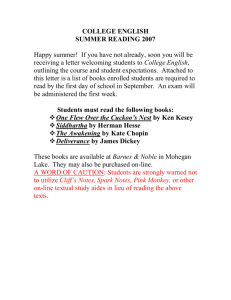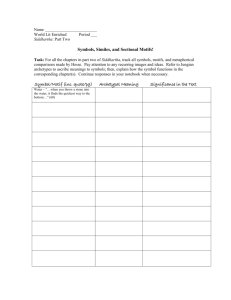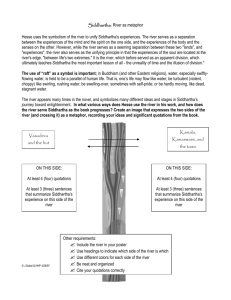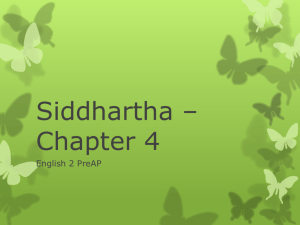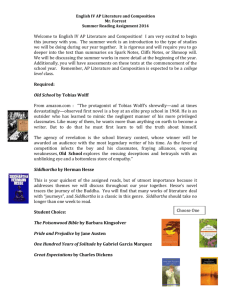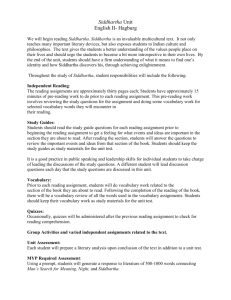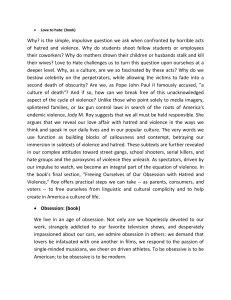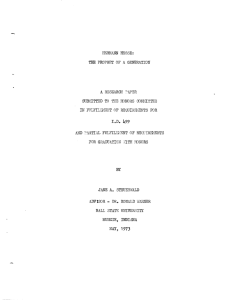File
advertisement
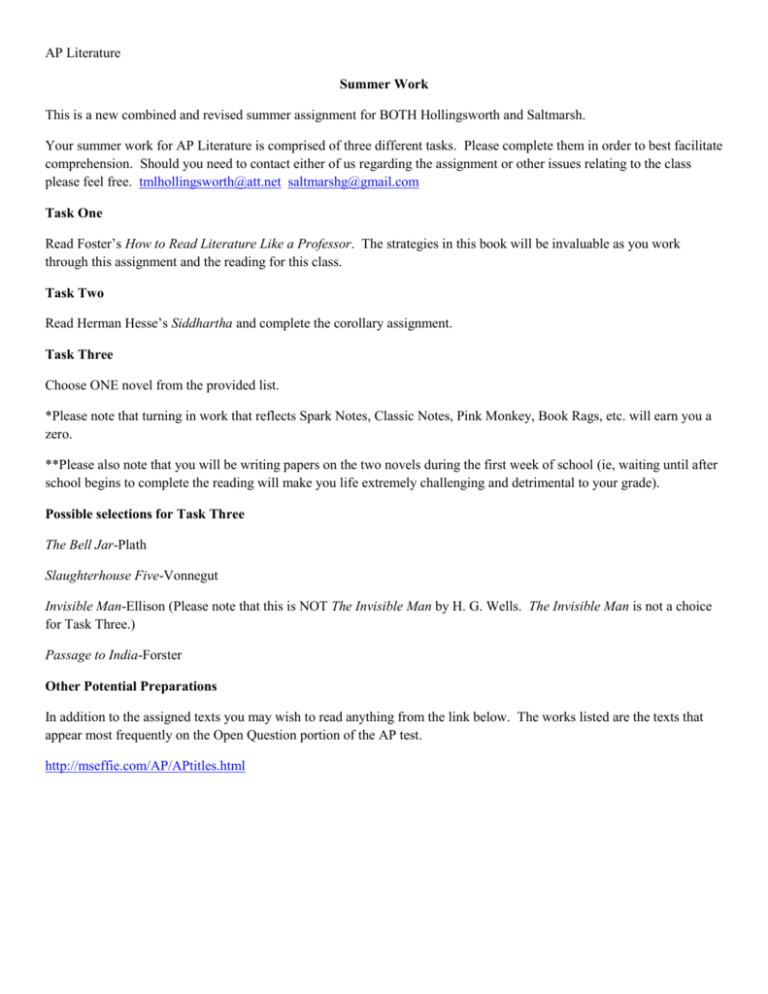
AP Literature Summer Work This is a new combined and revised summer assignment for BOTH Hollingsworth and Saltmarsh. Your summer work for AP Literature is comprised of three different tasks. Please complete them in order to best facilitate comprehension. Should you need to contact either of us regarding the assignment or other issues relating to the class please feel free. tmlhollingsworth@att.net saltmarshg@gmail.com Task One Read Foster’s How to Read Literature Like a Professor. The strategies in this book will be invaluable as you work through this assignment and the reading for this class. Task Two Read Herman Hesse’s Siddhartha and complete the corollary assignment. Task Three Choose ONE novel from the provided list. *Please note that turning in work that reflects Spark Notes, Classic Notes, Pink Monkey, Book Rags, etc. will earn you a zero. **Please also note that you will be writing papers on the two novels during the first week of school (ie, waiting until after school begins to complete the reading will make you life extremely challenging and detrimental to your grade). Possible selections for Task Three The Bell Jar-Plath Slaughterhouse Five-Vonnegut Invisible Man-Ellison (Please note that this is NOT The Invisible Man by H. G. Wells. The Invisible Man is not a choice for Task Three.) Passage to India-Forster Other Potential Preparations In addition to the assigned texts you may wish to read anything from the link below. The works listed are the texts that appear most frequently on the Open Question portion of the AP test. http://mseffie.com/AP/APtitles.html Siddhartha As you read through Herman Hesse’s Siddhartha, pay particular attention to the quotes below. As you read ask yourself the questions in parenthesis and contemplate the possible answers the novel suggests. The overarching themes are listed below; attempt to formulate how the quotes work to support ideas about the themes. We will utilize our reading during the first week of school to discuss how to read and write for this class. Please complete this in your own personal handwriting. This quote log is due, fully completed, when you arrive at the door on the first day of school. Themes for contemplation: Suffering equals salvation Societal happiness vs self-contentment Journey as self discovery Education vs enlightenment Intelligence and alienation Quotes for thought: “I have always thirsted for knowledge, I have always been full of questions.” (Does intellect breed unhappiness?) “Let me warn you, you who are thirsty for knowledge, against the thicket of opinions of words. Opinions mean nothing; they may be beautiful or ugly, clever or foolish, anyone can embrace or reject them.” (What is the distinct and inherent difference, if any, between opinion and belief? In what ways do the opinions and beliefs of other shape our own self perception?) “Truly nothing in the world has occupied my thoughts as much as the Self, this riddle, that I live, that I am one and am separated and different from everybody else…” (What does it mean to know yourself? Is all humanity knowable or are people so incongruously different that knowledge of self and not of other is all we can hope for? Do we learn about our self through our own self or through others?) “It was beautiful and pleasant to go through the world like that, so childlike, so awakened, so concerned with the immediate, without any distrust.” (To what extent does maturation destroy us? Are we better people when we are young and unknowing or when we understand the brutality of the world?) “One can beg, buy, be presented with and find love in the streets, but it can never be stolen.” (Can love, and here we mean romantic love, be a tangible thing as described here? Does love exist and act as something we give away? Is love and its expression inexorably linked with free will?) “Everyone can reach his goal if he can think, fast, and wait.” (Are the keys to success somewhere with the negation of our instincts?) “…I should have departed immediately feeling very annoyed when I saw I was unable to make a purchase, and time and money would indeed have been lost. But I spent a number of good days, learned much, had much pleasure and did not hurt either myself or other through annoyance and hastiness.” (To what extent do goals and desires mar our ability to enjoy life? Can there be a balance between hard work and pleasure? Does society value those who take the time to learn?) “He was sometimes afraid of these thoughts and wished that he could also share their childish daily affairs with intensity, truly take part in them, to enjoy and live their lives instead of only being there as an onlooker.” (Does intellectual understanding somehow separate us from others? Does being smart make us outsiders?) “People like us cannot love. Ordinary people can-that is their secret.” (If intelligence breeds unhappiness, can intelligent people love? Is love in diametric opposition to intelligence?) “And whenever he awakened from this hateful spell, when he saw his face reflected in the mirror on the wall of his bedroom, grown older and uglier, whenever shame and nausea overtook him, he fled again, fled to a new game of chance, fled in confusion and passion, to wine, and from there back again to the urge for acquiring and hording wealth.” (In what ways does obsession define us? How does humanity use obsession and addiction to its own advantage? Is there an antecedent to obsession or is it inherent?) “Was this cycle not exhausted and finished with him?” (Is suicide about life or about death?) “I am not going anywhere. I am on the way.” (Is the journey the outcome? Can there be an outcome if there is no goal?) “I had to experience despair, I had to sink to the greatest mental depths, to thoughts of suicide, in order to experience grace…” (How do we learn? Can we learn only from words or must we experience before knowing? Does suffering bring salvation?) “In this hour he felt more acutely the indestructibleness of life…” (Is life ephemeral or eternal?) “Do you not chain him with your love? Do you not shame him daily with your goodness and patience and make it still more difficult for him?” (Is permissiveness just as abusive as neglect? Does being and living require a discipline that must be taught or is it inherent?) “Seeking means: to have a goal, but finding means: to be free, to be receptive, to have no goal.” (What are the differences between “seeking” and “finding”? How does our perception of intent change our whole understanding of the world around us?) “Nirvana is not a thing; there is only a word Nirvana.” (What is the implication of “thing” and “word”? How does an understanding of that difference change how to achieve it? In what ways do we create and establish clear defining places to sooth ourselves?)
